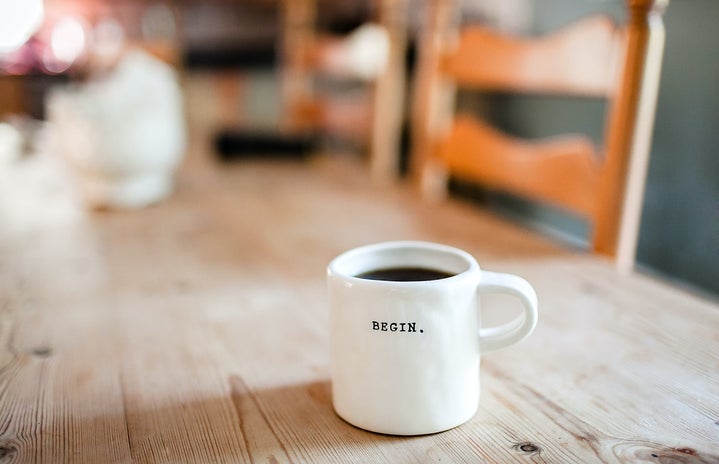If you’re a journalism major at UMass, chances are you’ve taken at least one class with the incomparable Karen List—the former working reporter, historian and First Amendment guru. When I sat down with Professor List for an interview, we discussed some of the challenges one faces while working in the field, how she got started, and advice for current journalism students.
Her Campus UMass Amherst: Where are you from originally?
Karen List: I’m from a very small town in Iowa. I was the editor of our high school newspaper, so I definitely started out with an early interest in journalism and writing. I also worked for the local paper in high school—it was called The Minneapolis New Era.
HC: What courses do you teach here at UMass?
KL: I teach journalism law, ethics, and journalism history.
HC: Where did you attend college? Did you know that journalism would be your focus?
KL: My high school teachers really pushed me toward journalism because I loved writing. I went to the University of Missouri for journalism, and after my undergraduate degree, I got two masters from Pennsylvania State, then my doctorate from the University of Wisconsin Maddison. My doctorate was in mass communication history and law.
HC: You attended one of the best schools for journalism in the country—what was your college experience like and how did it shape your career?
KL: At the University of Missouri, journalism was like military school. It was so hard and so intense and so competitive. Students would have nervous breakdowns sometimes, that’s how intense the pressure could be. There were 2,000 students in the journalism major alone. I used to be a faculty member at Missouri, and the intensity of their program is largely why I came here, to UMass. I had any student that was different, in any way, lined up outside my door to speak to me because most of the faculty were so inaccessible. They believed in journalism education by intimidation at Missouri, and I just really did not like that. So, I got early tenure at Missouri and then came here. I feel that I have been able to make a real difference in terms of the ethos of the department and students here.
“I think you can have integrity and compassion and still be as aggressive as you need to be. It’s all about your attitude and how you carry yourself.”
HC: Your first job after college was working as a reporter. Could you speak to the diversity of the reporters you worked with?
KL: In college, I didn’t experience much of a divide when it came to genders, or men being more dominant, but when I became a reporter at the Metro-East Journal in East St. Louis, which was a roughly 30,000 daily circulation paper—I would call that a mid-sized paper—there were two women in the news room. So I really got that in the profession, but in my schooling, not so much.
When you’re trained in journalism, when that’s your education, part of that is knowing how to talk to people and how to be assertive enough to be able to get the story. I think that kind of training made a huge difference for me—I didn’t feel intimidated in the newsroom, not on the job. I was very aware of being one of the few women—often the only woman—in meetings, but I can’t say that it negatively impacted my work, because I simply didn’t allow myself to be intimidated. I did what I had to do but enjoyed it immensely. I was a reporter in East St. Louis, so I was also often the only white person in the room, which is an experience I think everybody should have because it makes you much more aware and it helps you see things from the perspectives of others, which is an essential part of being a journalist.
HC: As a former journalist, you must have some great stories about working in the field. Are there any interviews in particular that stand out to you in your career?
KL: I got to interview some really great people, like Gloria Steinem. When I spoke with her, it was a small panel of journalists, and she had a small group of women with her. We were asking her questions, but she wanted us to ask the other women on the stage the questions. It was interesting, because you’re drawn to the person with the most celebrity, when really it’s the people who are more unknown who often have the real stories. I got to interview Leonard Nimoy, Tiny Tim, who was an eccentric musician and ukulele player. I also covered the women’s movement, which was really big in the 70s.
I covered maybe three or four communities just outside East St. Louis and Southern Illinois University. East St. Louis was 98% black or African American, so there were a lot of important stories to be told. That was one of the most satisfying parts of my career—giving voice to people who didn’t have as big of a voice as they should in our country was such a privilege.
HC: Did you ever look up to a particular individual in the field of journalism as a role model?
KL: In my career, I often did the opposite of what my role models were doing because I always felt it was imperative to have a lot of empathy, and to feel for your sources or students rather than just get the story and run with it without caring about who it will impact. So I often found myself doing the opposite, because I guess you could say I had negative role models, people who I didn’t want to become. I felt that way about most of the reporters I worked with. I think you can have integrity and compassion and still be as aggressive as you need to be. It’s all about your attitude and how you carry yourself. A lot of times, it makes it easier doing a difficult story or even giving a bad grade, because if you show that you are truly invested in something, people won’t hold it against you.
HC: What kind of skills do students majoring in journalism gain, and what have some of your students gone on to pursue as careers?
KL: I think journalism is a fantastic major because it hones your critical thinking skills. Much of the industry is moving online and expanding in terms of digital communication. I think it makes it so much more exciting. The skills you get in the journalism major are so widely applicable, and it’s a great foundation for many different career paths in politics, law, and teaching.
About half of my former students are working in journalism now. A lot of people go into politics, teaching law, and public relations. I have a student who has just become a private investigator, and she has relied heavily on the investigative skills she picked up through her journalism degree. I also heard from another student recently who is the chief of staff for the mayor of a big city. He writes her speeches and does all communications with the media.
“From the first class I taught, I loved it. I was hooked. I love teaching and I love journalism, so the combination couldn’t be any better.”
HC: What are you most proud of, in your life and in your work?
KL: I am so passionate about my teaching and I am so passionate about my children, so I would say the things I’m most proud of are my daughters and my students. Sometimes my daughters were jealous because my students got so much attention. I’m at the point now where on any given day, I get at least six emails from former students from all over the place. I absolutely love that. It’s like having a huge extended family all over the world.
HC: What is one thing you would like your students to know about you?
KL: The one thing is how much I care about them—that I care what they are taking away from my class, and that I work really hard to make that happen. I changed the way I give tests, and one of my students in law said, “It’s like you really want us to learn.” And that’s because I do!
HC: Finally, what is your advice to current female college students?
KL: Do what you want. Do what makes you happy, and believe that you can do it. Try to do everything you want to do. I think you can have it all, but maybe not at the same time. I tell my students to think about what they want and then figure out how to get there. I watch students move through classes and get internships and then jobs. That’s one of the greatest things about teaching, figuring out how to have other people live their dreams. I thought I would be a reporter forever; I never considered teaching until I started teaching a class during grad school at Penn State. From the first class I taught, I loved it. I was hooked. I love teaching and I love journalism, so the combination couldn’t be any better.
Images: 1


